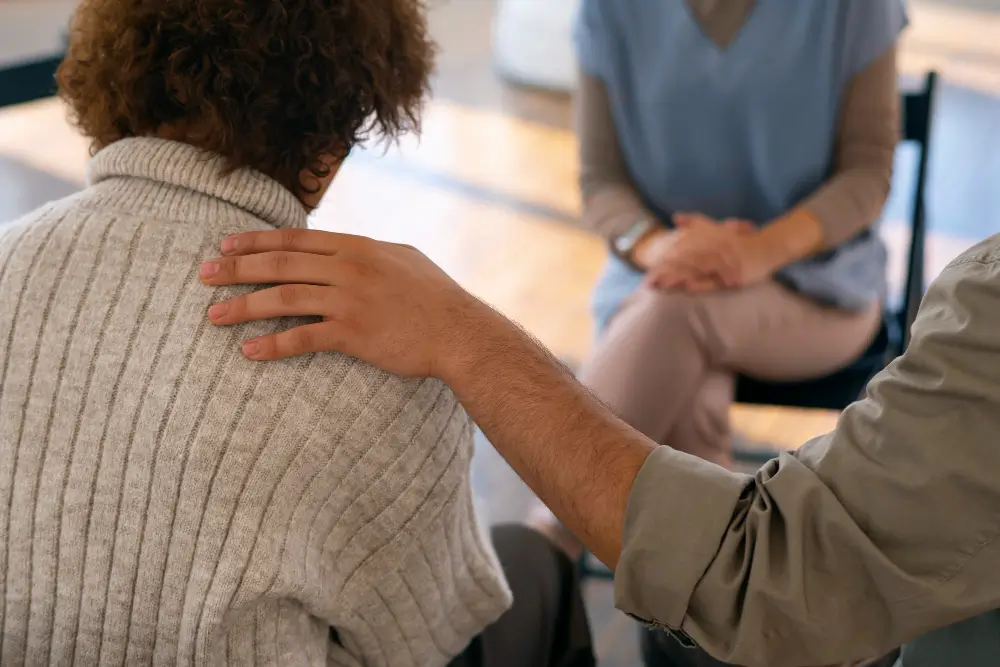As mental health challenges rise across the nation, the Suncoast region of Florida is witnessing significant strides in addressing the growing demand for behavioral care. The recent opening of North Port’s new 144-bed behavioral health hospital has created ripples beyond its immediate locality, serving as a model for communities like Fort Myers to consider for their future mental healthcare needs. This introduction of a large-scale regional facility isn’t just a response to mental health needs—it’s also indicative of broader shifts in healthcare strategy, focusing on inpatient care and expanded access for underserved populations.
For Fort Myers and Lee County, this trend presents implications that deserve thoughtful consideration. Could the city follow North Port’s example to address its own behavioral health gaps? Let’s explore what Fort Myers can learn from this facility and what the future of mental healthcare might look like in Southwest Florida.
The Trend: Big New Regional Behavioral Hospitals
The opening of the facility in North Port represents a significant investment in the growing demand for behavioral healthcare resources. Regional behavioral hospitals—like this one—reflect a strategy designed to handle large patient volumes while offering comprehensive inpatient treatment services.
Increased mental health awareness has shed light on the glaring gaps in resources, particularly in rural and suburban areas such as North Port and Fort Myers. Before this hospital, many individuals in surrounding communities were forced to travel significant distances to access appropriate care. This trend signals both an acknowledgment of the shortage of behavioral health resources and a shift by healthcare planners to meet the needs of underserved populations.
Behavioral hospitals, such as North Port’s, act as anchors for their regions, drawing patients from broader geographic areas to ensure they receive tailored, holistic inpatient care, including for adults and seniors, an often underserved demographic.
Implications of North Port’s New 144-Bed Behavioral Hospital
The opening of North Port’s new 144-bed facility emphasizes access, a key issue that resonates with residents of Fort Myers. Currently, many individuals in Lee County face challenges in obtaining timely, adequate care for behavioral health issues. From limited local options to long wait times, the lack of accessible facilities often results in unnecessary delays, pushing individuals with mild issues into more severe mental health crises.
A regional facility in North Port mitigates these challenges for residents in the surrounding areas, especially those who historically had to travel to larger urban centers like Tampa or Sarasota. For Fort Myers, investing in local inpatient facilities could similarly reduce the barriers residents face when seeking care.
Beyond convenience, this shift empowers community members by ensuring they can access quality care close to home. When behavioral health facilities are geographically accessible, it reduces the stigma associated with seeking treatment. Residents become more likely to view mental healthcare as just another component of overall health—a vital perspective for erasing cultural barriers tied to mental health.
A Shift Toward Inpatient Care for Adults and Seniors
One notable focus of North Port’s facility is the emphasis on inpatient care for adults and seniors. Traditionally, mental healthcare infrastructure has often prioritized outpatient services, including individual therapy, counseling, and medication management. However, inpatient facilities allow for deeper interventions that provide comprehensive care for patients who require intensive treatment or stabilization during mental health crises.
For years, inpatient behavioral health care has lagged behind outpatient options, especially for adult and senior populations. Specific demographics—such as older adults suffering from issues like depression, anxiety, or dementia-related complications—often require sustained, 24/7 care that only inpatient facilities can provide.
The prioritization of such care aligns with several significant trends:
- The Aging Population: As Southwest Florida’s population continues to age, demand for geriatric-focused mental health services is expected to rise. Senior citizens are particularly vulnerable to mental health decline due to isolation, loss of loved ones, and chronic illnesses.
- Emergency Department Strain: Without dedicated inpatient facilities, many individuals experiencing mental health emergencies end up in local ERs. Hospitals in Fort Myers and North Port are increasingly seeing patients whose primary issue is related to behavioral health. Moving these patients out of crowded emergency rooms and into specialized facilities provides better outcomes for them while easing pressure on healthcare systems overall.
- Comprehensive Recovery: Dedicated behavioral hospitals offer amenities that outpatient services or traditional hospital mental wards cannot match. For example, patients can participate in group therapy, utilize recreational spaces, and receive intensive therapies in therapeutic environments tailored to their mental health needs.
For Fort Myers, this trend presents a strong case for exploring investments in similar facilities. Meeting demands for senior-focused behavioral healthcare could help address a growing demographic challenge for the city.
Potential Opportunities in Lee County
The opening of North Port’s hospital might be the first of many such facilities to sprout in the region. In Lee County, where Fort Myers faces similar challenges, planning for behavioral health centers could offer numerous benefits. Could this be an opportunity for Fort Myers?
A New Behavioral Hospital in Lee County
While Lee County already has some resources dedicated to mental health, none match the scope of North Port’s new facility. Establishing a behavioral hospital in Fort Myers could greatly expand the region’s capacity to care for individuals with acute mental health needs.
A regional hospital in Fort Myers might:
- Increase Access: Offering hundreds of inpatient beds would instantly reduce wait times for care and serve as a critical resource in emergencies.
- Strengthen the Local Healthcare Network: Connecting a new behavioral health hospital to the broader Lee County healthcare system would facilitate smoother transitions between acute care and outpatient follow-up services.
- Reduce Emergency Room Burden: A facility focused exclusively on behavioral healthcare would prevent overflow from non-specialized hospitals, freeing up critical resources for other emergencies.
Opportunities for Public-Private Partnerships
North Port’s facility likely required buy-in from both the private healthcare industry and public entities. Fort Myers could replicate this model by encouraging collaborations between private investment groups, healthcare agencies, and state-funded initiatives to develop a similar facility. Leveraging grants, tax incentives, and subsidies could help reduce upfront costs and expedite project timelines.
Bridging Health Inequities
Residents of rural Lee County, as well as those in underserved communities, would especially benefit from greater access to behavioral healthcare closer to home. A facility designed to take in patients from across the county could ease travel burdens and provide equitable care for historically overlooked populations.
Planning Ahead: Fort Myers’ Role in Southwest Florida’s Behavioral Health Expansion
With North Port setting the standard, the pressure builds for Southwest Florida cities, such as Fort Myers, to follow suit. Leaders in Lee County face both a challenge and an opportunity: they could choose to join the wave of large-scale regional behavioral health infrastructure or risk falling behind in addressing critical community needs.
The ongoing growth in Florida’s population adds urgency to the situation. More residents equate to more demand for mental health services. Without proactive planning, the existing healthcare infrastructure in Lee County may struggle to keep up.
Moreover, Fort Myers has the opportunity to lead the way in innovative care models. For instance, a new behavioral hospital could integrate advanced telehealth services, outpatient step-down services, and community partnerships to create a seamless continuum of care for patients.
Overall Impact & Takeaways
North Port’s new 144-bed behavioral hospital signals a momentous shift toward bolstering regional inpatient behavioral health services. Its opening sets the tone for similar developments across Southwest Florida, with Fort Myers emerging as a logical following location for expanded mental healthcare resources.
Addressing mental health needs isn’t a “nice-to-have” initiative—it’s a necessity for community wellbeing. As demand for adult and senior inpatient care rises, cities like Fort Myers cannot afford to ignore the opportunity to invest in robust mental health infrastructure.
By embracing lessons from North Port, Fort Myers can proactively forge its path toward a healthier, more inclusive community—one where access to quality care isn’t determined by geography but by need.
Get Exceptional Mental Health Treatment in Fort Myers, FL With Calusa Recovery
At Calusa Recovery, we provide compassionate, evidence-based mental health treatment tailored to your unique needs. Located in the heart of Fort Myers, FL, our programs are designed to support individuals struggling with anxiety, depression, trauma, and other mental health challenges. Whether you need outpatient care, intensive therapy, or dual diagnosis support, our experienced team is here to help you regain control and thrive.
Take the first step toward healing today. Contact Calusa Recovery to learn more about our mental health services in Fort Myers and begin your path to lasting wellness.










